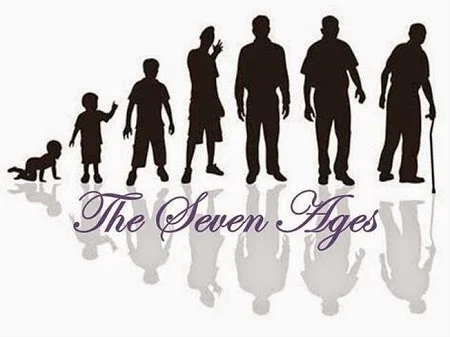Study Material of The Seven Ages (Summary and Word Meanings)
Summary of the PoemShakespeare considers the world a stage and men and women actors on the stage of life. There are seven Acts like seven stages in a man’s life. A person performs multifarious roles in a single life-time. In the beginning, he is a baby crying in the arms of the nurse. Infancy is followed by school-going stage, when he is bright-eyed, trudging unwillingly to school. In the third stage, he grows into a lover, writing poems in praise of his beloved and sighing like a furnace. Then he plays the role of a soldier, who is rash, and who willingly sacrifices his life for honour. In the next role he is a Judge, well-fed, prosperous, fat and fierce-eyed. He is always in a mood of impressing others and is full of wise maxims. The next stage depicts man to be weak, thin, wearing spectacles and slippers. His clothes are loose and legs are thin and his voice is shrill like that of a child. At the end comes the last stage when he loses his memory, teeth, eyes, taste, infact everything. It is like a second childhood as he has to depend on others for everything. Thus ends the drama of his eventful life.
Terms and Meanings from the Poem
• Mewling – crying
• Puking – vomiting
• Satchel - a small bag for carrying school books.
• Woeful - very sad
• Pard – leopard
• Cannon - a big gun that fired cannon-balls made of iron
• Capon - very big and fat
• Oaths - solemn promises
• Justice – judge
• Slippered – wearing indoor shoes
• Pantaloon - a funny old man on whom other people play tricks
• Pouch - a soft fold of loose skin that hangs down as a result of illness or old age
• Hose - tight-fitting leg coverings
• Shank - legs from the knee to the ankle
• Treble – a high voice
• Oblivion - forgetting everything and being forgotten by everybody. Sans – without (a french word)
View NCERT Solutions of The Seven Ages


